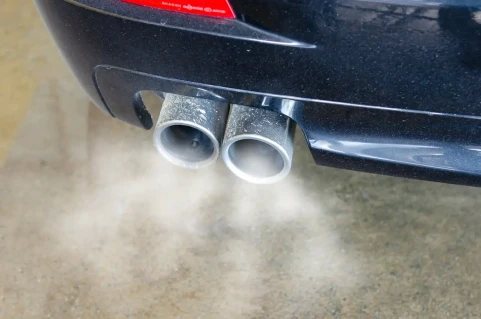Often, a salvage car is usually sold less than its actual worth because the vehicle has been totaled. Because salvage title cars are sold at a fraction of their supposed actual price, most people looking to get a car at a cheaper rate would most likely opt for it. However, for a vehicle with a salvage title to become roadworthy again, it would require serious work to be done on it. If you're looking to get your salvage title cars back on the road again, here are some things you should know and what needs to be done to make them roadworthy again.
What Does Salvage Title Mean
A salvage title is branded on a vehicle damaged and regarded as a total loss by an insurer. The damaged car is often indicated as a total loss by an insurance company when the cost of repairing the vehicle is greater than the vehicle's actual worth. To recover costs, the insurer then resells the damaged vehicle to an auto repair company that rebuilds or repairs the car. So the salvage title meaning helps to indicate to buyers that the car is damaged.
Getting Your Salvage Car on the Road Again
Depending on the severity of the damage, salvage vehicles can be useful. Some are great options for salvage auto parts, while some can become roadworthy again, even though the process can be complicated. Why is this so, and how do I make it roadworthy again?
It's illegal to Drive Salvage Vehicles
When it comes to American auto Salvage, it's illegal to drive any salvage vehicle on the road in any state; this is because the cars have been conferred with the "salvage title." A salvage car cannot be insured or registered; hence you can drive it on the road even if it's in good condition; this means that after you've bought your vehicle at the salvage auction, you'll need to transport it on a flatbed to your driveway.
There Must be a Salvage Vehicle Inspection
Making a salvage car to get back on the road is more than fixing the damages and putting it in good driving condition. Additionally, for most states, the salvage car must pass through salvage vehicle inspection. You'll need to take it to an official inspection center authorized by the state to go over your papers; most official inspection centers are set up by the state police department or the DMV.
During the inspection, you'll be required to present different documents depending on your state. In many states, the primary requirements include:
- Filling some forms.
- Presenting the salvage title for the car.
- Submitting the receipts of parts used in rebuilding the vehicle.
The Department Motor Vehicle official or the state police officer would inspect the VIN (Vehicle Identification Number) on the presented document and check if they match the vehicle. After that, they confer a new title on the car. The car is then branded as "rebuilt salvage." After that, the car can now be registered and insured.
Insuring Salvage Cars Can be Difficult
Every state requires a minimum amount of insurance before you can drive your salvage car on the road again; this means you'll need to get a PLPD cover (Personal Liability and Property Damage). Getting a PLPD cover for a rebuilt salvage vehicle is easy. The major challenge comes when you have to get more than the minimum insurance for the vehicle.
One of the problems with rebuilt salvage vehicles is the absence of a guarantee on rebuilding the car. The inspection on salvage vehicles often involves focusing on the legality of the reconstructed vehicle while ignoring the safety; this makes it risky for an insurance provider to provide coverage on collisions, fire and water damage, and other physical damages to the vehicle.
Hence the easiest way to bypass these challenges is to take the car for a second inspection. The insurer inspects the internal and external parts of the vehicle and determines its safety. Once the insurer verifies that the vehicle is safe to drive on the road, you get higher insurance.
Endnote
One of the system's peculiarities is that vehicles must not necessarily be badly damaged before it's written off. Sometimes the car may just be an old and depreciated car. With just slight damage, it could be written off; this means that you can benefit from buying a salvage car, especially if it's just minor damage that can be repaired. However, before you buy a salvage vehicle, it's best to evaluate if you are ready to commit to making it roadworthy again. Use EpicVIN today to get a detailed car history report with our vin decoder to find out that it is possible to drive the chosen salvage vehicles.







